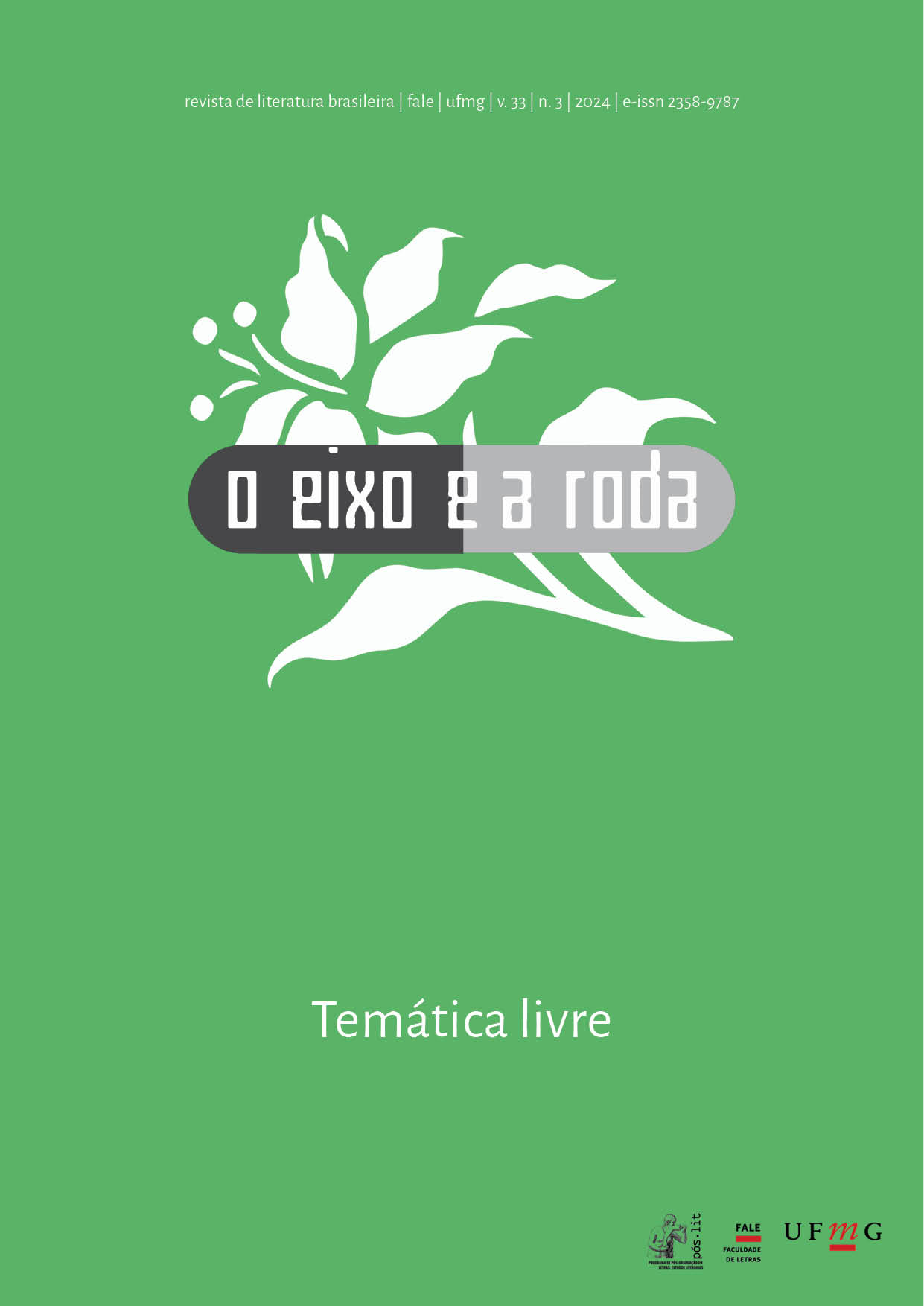The power of the subalterns in Solitária by Eliana Alves Cruz
The dissolution of secondariness in Mabel’s narrative
Keywords:
Cultural Studies, subalternities, alterity, secondary characters, co-protagonismAbstract
This study investigates a specific work where the traditional idea of secondary characters is challenged, resulting in a partnership between the protagonists and their surroundings. Mabel and Eunice, the protagonists and narrators, play essential roles in resistance and connection with less represented characters. This pattern reflects a trend in current literature. In this article, we will examine Solitary (2022), focusing on the first chapter, which highlights Mabel’s account. However, our analysis focuses on the resistance movements provoked by the characters around Mabel. We propose to question the notion of secondary characters and discuss how in contemporary literature they have an active voice, challenging the idea of being mere supporting characters. This highlights the importance of considering the diversity of voices and the complexity of their actions. To this end, we will rely on the discussions by Justino (2015) and Hardt and Negri (2005) to discuss the concepts of the multitude and literature of the multitude. From Candido (2014) and Rosenfeld (2014), we will discuss the character and its processes of autonomization in contemporary narrative, while we draw on Cortázar (1998) to expand the reflections on the character as a semiotic structure of the novel and how Eliana Alvez Cruz dissolves these categories in her prose.
Downloads
References
CANDIDO, Antonio. A Personagem do Romance. In: CANDIDO, Antonio… [et. al.]. A personagem de ficção. São Paulo: Perspectiva, 2014.
CORTÁZAR, Júlio. Obra Crítica, volume 1; edição de Saúl Yurkievich; tradução Paulina Wacht e Ari Roitman. – Rio de Janeiro: Civilização Brasileira, 1998.
CRUZ, Eliana Alves. Solitária. – 1ª ed. – São Paulo: Companhia das Letras, 2022.
HARDT, Michael; NEGRI, Antônio. Multidão: guerra e democracia na era do Império. Rio de Janeiro: Record, 2005.
JUSTINO, Luciano Barbosa. Literatura de multidão e intermidialidade: ensaios sobre ler e escrever o presente [Livro Eletrônico]. – Campina Grande: EDUEPB, 2015.
ROSENFELD, Antol. Literatura e Personagem. In: CANDIDO, Antonio… [et. al.]. A personagem de ficção. São Paulo: Perspectiva, 2014.




 Esta obra está licenciada com uma Licença
Esta obra está licenciada com uma Licença 